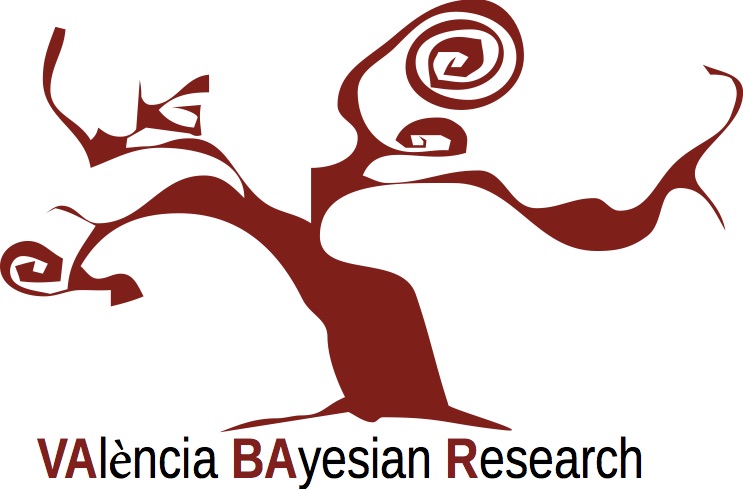
The Faculty of Mathematics of the Universitat de València is hosting the sixth edition of the València International Bayesian Analysis Summer School from 10 to 14 July. The summer school is organised by the Valencia Bayesian Research group (VABAR, vabar.es) of the Universitat de València, directed by professor Carmen Armero.
The summer school consists of three different elements. The sessions on Monday and Tuesday give a basic introduction to Bayesian Statistics, both methodological and applied. This basic course of 12 hours includes conceptual and practical sessions. The practical sessions are designed to allow the students to consolidate and apply the knowledge gained during the theoretical sessions.
The sessions during the second part of the summer school on Wednesday and Thursday are of a more specialised nature. This advanced course is on Bayesian capture-recapture inference with hidden Markov models and is taught by Professor Oliver Gimenez from the Centre of Écologie Fonctionnelle & Évolutive in Montpellier, France.
On the last day, Friday 14, the Sixth VIBASS Workshop will take place. This is a conference composed of two plenary sessions by internationally renowned specialists in Bayesian Statistics. This year's guests are Professor Audrone Virbickaite (CUNEF University, Spain) and Professor Duncan Lee (University of Glasgow, Scotland). The Workshop includes an oral presentation session in which the students of the course can participate and present their work. This is a particularly interesting session for young researchers because it allows them to present their work in a rigorous statistical environment, but one that is at the same time informal and warm, facilitating and enhancing scientific communication and discussion.
In addition to the UV, the University of Castilla-La Mancha and the Biomathematics and Statistics Scotland and CIRAD from France also participated in the organisation of the summer school.
The first references to the practical use of Bayesian statistics date back to the Second World War. The famous mathematician Alan Turing used Bayes' theorem to decipher the orders, hidden in the Enigma code, that the German army sent to its submarines sailing in the North Atlantic. Today, Bayesian statistics has become an increasingly useful and necessary tool for analysing phenomena with uncertainty and data: The US Navy used Bayesian algorithms in the search for the missing Air France flight 447 in the Atlantic in 2009; Google uses Bayes' rule for automatic decision making in its driverless car; Microsoft uses Bayesian filters to detect spam; NASA uses Bayesian methods for risk assessment; archaeologists use the Bayesian paradigm for dating archaeological remains, and so on.
More information:
Links:
















